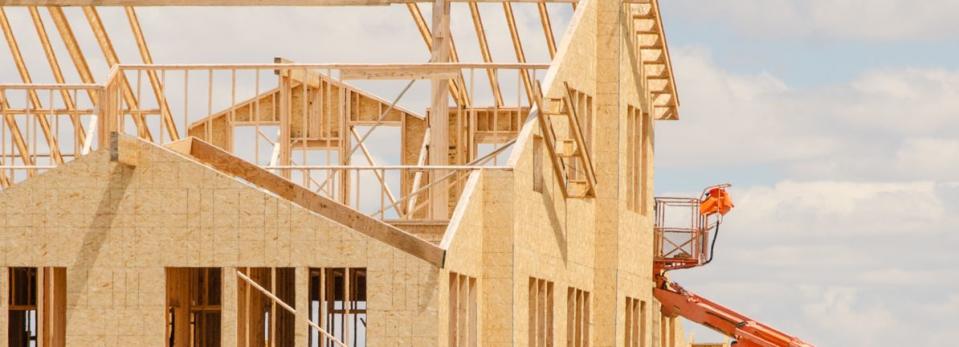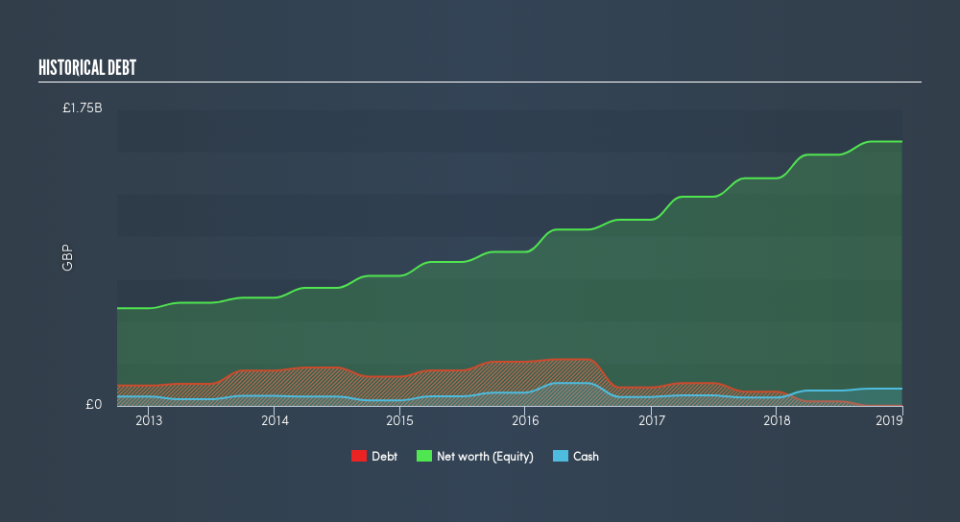Here's Why Redrow (LON:RDW) Can Manage Its Debt Responsibly

Warren Buffett famously said, 'Volatility is far from synonymous with risk.' It's only natural to consider a company's balance sheet when you examine how risky it is, since debt is often involved when a business collapses. We can see that Redrow plc (LON:RDW) does use debt in its business. But the real question is whether this debt is making the company risky.
Why Does Debt Bring Risk?
Debt is a tool to help businesses grow, but if a business is incapable of paying off its lenders, then it exists at their mercy. Ultimately, if the company can't fulfill its legal obligations to repay debt, shareholders could walk away with nothing. However, a more usual (but still expensive) situation is where a company must dilute shareholders at a cheap share price simply to get debt under control. By replacing dilution, though, debt can be an extremely good tool for businesses that need capital to invest in growth at high rates of return. When we examine debt levels, we first consider both cash and debt levels, together.
Check out our latest analysis for Redrow
What Is Redrow's Debt?
The image below, which you can click on for greater detail, shows that Redrow had debt of UK£1.00m at the end of December 2018, a reduction from UK£84.0m over a year. However, it does have UK£102.0m in cash offsetting this, leading to net cash of UK£101.0m.
How Healthy Is Redrow's Balance Sheet?
We can see from the most recent balance sheet that Redrow had liabilities of UK£736.0m falling due within a year, and liabilities of UK£157.0m due beyond that. On the other hand, it had cash of UK£102.0m and UK£43.0m worth of receivables due within a year. So its liabilities outweigh the sum of its cash and (near-term) receivables by UK£748.0m.
This deficit isn't so bad because Redrow is worth UK£1.90b, and thus could probably raise enough capital to shore up its balance sheet, if the need arose. But it's clear that we should definitely closely examine whether it can manage its debt without dilution. While it does have liabilities worth noting, Redrow also has more cash than debt, so we're pretty confident it can manage its debt safely.
And we also note warmly that Redrow grew its EBIT by 12% last year, making its debt load easier to handle. There's no doubt that we learn most about debt from the balance sheet. But ultimately the future profitability of the business will decide if Redrow can strengthen its balance sheet over time. So if you want to see what the professionals think, you might find this free report on analyst profit forecasts to be interesting.
Finally, while the tax-man may adore accounting profits, lenders only accept cold hard cash. While Redrow has net cash on its balance sheet, it's still worth taking a look at its ability to convert earnings before interest and tax (EBIT) to free cash flow, to help us understand how quickly it is building (or eroding) that cash balance. Looking at the most recent three years, Redrow recorded free cash flow of 48% of its EBIT, which is weaker than we'd expect. That weak cash conversion makes it more difficult to handle indebtedness.
Summing up
While Redrow does have more liabilities than liquid assets, it also has net cash of UK£101m. And it also grew its EBIT by 12% over the last year. So we don't have any problem with Redrow's use of debt. Given Redrow has a strong balance sheet is profitable and pays a dividend, it would be good to know how fast its dividends are growing, if at all. You can find out instantly by clicking this link.
If, after all that, you're more interested in a fast growing company with a rock-solid balance sheet, then check out our list of net cash growth stocks without delay.
We aim to bring you long-term focused research analysis driven by fundamental data. Note that our analysis may not factor in the latest price-sensitive company announcements or qualitative material.
If you spot an error that warrants correction, please contact the editor at editorial-team@simplywallst.com. This article by Simply Wall St is general in nature. It does not constitute a recommendation to buy or sell any stock, and does not take account of your objectives, or your financial situation. Simply Wall St has no position in the stocks mentioned. Thank you for reading.

 Yahoo Finance
Yahoo Finance 
